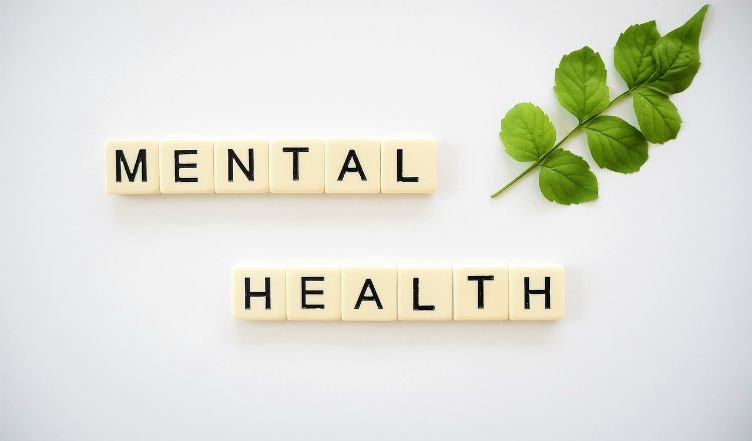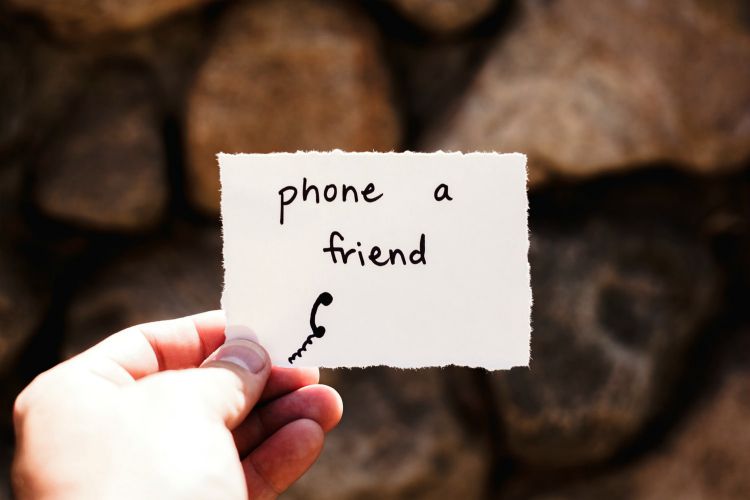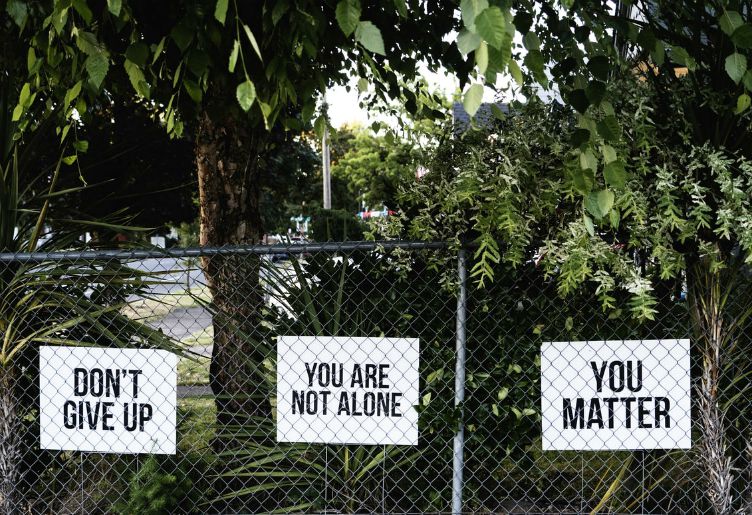
Listen above or tune in on Apple Podcasts or Podbean
EPISODE 67 – PODCAST TRANSCRIPT
Hi there, welcome back to Kelly Martin Speaks, I’m your host Kelly Martin and this is episode 67.
Today I’m going to talk all about accepting our mental health issues.
A listener who I will call Jackie (this is not their real name), brought a question to me about mental health.
Jackie said:
Why are we reluctant to tell people we are struggling and what’s the worst that could happen?
Thank you, Jackie, for asking this valid question.
First of all, we need to look at the stigma of mental health in society and how even though more and more people are talking about mental health, nobody seems to talk about how we bring issues we have with our own mental health to our friends and family. It can be easy to talk about it on a public forum with strangers, but those nearest and dearest?
How do we share our honest experiences from a place of vulnerability without feeling judged or having assumptions being made of us?
And more so how do we talk about mental health when we have been wearing a mask of ‘we have our life together’ for so long?
For me I wore a mask of smiles for a very long time. To feel I had control over how people viewed me was more important than letting my guard down and revealing the truth, but in the long term it was incredibly painful to pretend that I was okay.
It can be much easier to hide our mental health issues because let’s be honest, most people are so bogged down with their own pain and struggles that we feel we don’t want to burden others with our own pain.
We also may have had experiences of telling someone we are depressed for example and in a way the stigma of mental health issues has gone in the opposite direction. To the point that being depressed for example is ‘normal’ and to say we suffer from depression is like saying ‘What are we having for dinner tonight?’ A short discussion and it’s over.
My experience with this, was when sharing with people I thought were close friends and saying I was really down and depressed and hoping that they would check in with me from time to time, come see me and support me, but the exact opposite happened. They were too busy with their own stress to come in my direction.
So, it can be hard to share, but it’s important to share and there are ways to share that bring about a different response from others.
Sharing With The Right People Is Important
I don’t share my own mental health issues with everyone. I probably share them more publicly with strangers than I ever do with people close to me. The exception being my best friend Mike and occasionally my mother. The rest of my family never really heard about my suicidal thoughts, my crawling into bed in deep painful tears, my not getting dressed for days and hiding from the world.
Why? I needed to gage my audience, I needed to share my deepest pain and mental health issues with those who loved me and genuinely wanted to support me. This can take a little bit of thought, on our parts.
If you are unsure who is the right person to share with, consider writing a list of pros and cons on that person and finding the right people to share your journey with.
Not everyone will support us, and this is where we need to accept this fact as hard as it can be.
If we find it hard to share our mental health issues with those who love us, we have to ask ourselves why? Do we not trust them? Or are we scared they won’t love us anymore for sharing our deepest vulnerabilities? Or do we feel our issues are too shameful to share?
Sometimes we need to ask, ‘What is the worst thing that could happen if we share our mental health issues with those close to us?’ and if we can face this worst case scenario, we can then go deeper and start opening up.
If the worst-case scenario is that they won’t love us anymore, then they never loved us anyway.
If the worst-case scenario is that they will judge us as broken. We can deal with that too.
If the worst-case scenario is that they will discount our experience as not real, we at least know where we can stand, and we can then make empowered choices in whether to continue the relationship or move on. Or find a different way of being with that person.
If the worst-case scenario is that they don’t know what to say to us, we can offer them ways to help and inform them about our illness.
We can only face what we know. So, if we hold back from others that we are seriously depressed or anxious, we are holding back the opportunity for healing and support also.
What we may find is that sharing with those who care for us can open a doorway that gives them permission to love us further by supporting us.
It’s a gift to give and care for someone, not a burden.
And anyone that finds your honest sharing to be a burden, is not really the best person to be around anyway.
One of the most important things about finally sharing our pain is that we may find that those same people are suffering themselves and afraid to share their own mental health issues. This can then set up an amazing dialogue about your experiences. You can then support one another.
As they do in Alcoholics Anonymous, when an alcoholic is craving alcohol and spiralling downwards the best thing they can do is help someone who is doing the same. Our shared experiences can transform so much in our lives.
So, while it may be easier to hide our mental health issues, the long-term results of hiding can simply compound shame, guilt, fear and make us suffer further.
And if we don’t have anyone close to us to share with, there are online chat forums now for people with mental health issues, groups and even apps where we can talk to a therapist via text message, skype or in person.
We shouldn’t have to suffer alone.
You Are Not Alone
And if it feels too hard to share when in the midst of the pain, consider talking to them when you are in a better place, when you are feeling calm or as calm as you are able to at the time.
Once we begin to be honest, to remove the masks that ‘we are okay’ and admit we are not okay, we haven’t got our shit together and we feel like we are falling apart, we can then allow our family, our friends to respond in ways we may not expect.
Reaching out by instead of simply saying ‘I am depressed’ to ‘I need to say that I am suffering from depression, I have days when I feel suicidal and I could do with some help, the help you could give me is checking in with me from time to time. To keep inviting me out socially, to visit me and to know that some days I don’t want to socialise and would like just one on one time with you’.
This can be a scary but incredibly brave thing to do. And while we shouldn’t have to reach out and hope that others will reach out to us instead and see the pain we are in, most people are so messed up also that they can’t see what is happening in other people until it is pointed out to them.
And try not to judge yourself as unlovable if someone is unable to emotionally support you. Not everyone is going to be able to emotionally support you, some people are just not that in touch with their own emotions and are better with the practical things.
So, if you get into a conversation with your mother, your sister or your partner for the first time, consider what it is you would actually need from them and begin to ask directly. People want to help, but often don’t know how to help.
If you have friends who are good with emotions, they would be a great shoulder to lean on. If you have friends who are not good at emotions but are practical, you could ask them to invite you to do practical, everyday things with, they could be great distractions when it becomes too much.
So in your life:
Who is good at listening or giving you a hug?
Who is great at understanding?
And when first bringing up the subject you could say something like:
“I want to talk to you about something important. I’m not sure how to talk about it, though. Can you just listen to me and try to understand? I’m hoping I’ll feel better after talking about it with someone, but I need you to be patient.” And go from there
Positive Ways We Can Ask Others To Support Us With
The positive ways people could help you with your mental health issues are:
- Going with you to a doctor if you feel anxious and support you in talking about medication if needed.
- When you have stopped communicating, checking in with you. Not just asking ‘Are you okay?’ Because you may simply say YES. Instead asking ‘How are you feeling today?’ and go from there. If you are in a dark place, they can go visit you, take you some hot soup, organise a couple of hours to watch comforting or funny movies. Go to see you and simply listen or just be there for company.
- Become knowledgeable on whatever the condition is that you have, if you have anxiety, what does that mean? How does that affect your behaviour and thought processes, try and be more compassionate and understanding if they say no to social events. Know that your friend or family member doesn’t want to feel this way, but it’s a fact, they feel whatever they are feeling and it’s okay
- Go for walks with you, in nature if you are able. Nature can be a great healer and walking helps ground us, it can also help balance to the two sides of the brain, some light gentle exercise can do wonders
- Don’t get drawn into ‘poor me’ and instead focus on the qualities in you, but don’t be too positive because that can make someone with mental health issues feel misunderstood and unheard. It takes real commitment and love, but your love can make the world of difference
- Let you know that you can call them any time things get bad and most importantly let you know that you are not a burden and that they want to help
- If you have been suicidal or felt suicidal, talk to them about drawing up a crisis plan with you. So, if you feel you are sinking into that place, what are the steps that they can do and you can do together to avert it going into that dark place
- Understand that just because you are having a better day or week this doesn’t mean the mental health issue won’t affect you again. Make sure they check in with you and offer you a listening ear or hug from time to time still.
Those of you with mental health issues, know that your friends and family want to help you, but they may not understand what your mental health issues are. So, find ways to inform them, in a simple terms.
If you feel you can’t verbalise this, direct them to websites or give them leaflets so that they can understand more.
You deserve to receive encouragement, and this is a big reason to share what is happening and part of sharing also means a by-product of this is you are accepting your mental health issue and not shaming yourself for having this experience.
Releasing the stigma and shame around having a mental health issue is so freeing and healing. And letting your friends or family help you by giving them ways to help you will make a huge difference.
Jackie, I understand how hard it is to open up to those around us when we feel scared that we will be judged or ridiculed for mental health issues, but you may well find out that your friends and family had a feeling that you were going through something anyway, but didn’t want to pressure you to speak, until you were ready.
Let them in, even if you just begin with one person. I hope it works out for you and anyone else who is feeling the same way, you don’t have to do this alone, reach out.
Thank you, Jackie, and thank you everyone for listening to another episodes of Kelly Martin Speaks.
If you have a question or topic you are struggling with and would like me to answer on an upcoming podcast episode please get in touch. I will make your name confidential to those listening. EMAIL me at kellymartinspeaks@gmail.com or message me on Facebook via my page Kelly Martin Speaks.
Until next time…bye for now.
Support Kelly Today
If you enjoy Kelly’s podcast or blog posts, support her via a one-off or regular donation on Paypal. Anything from as little as the price of a cup of coffee offers encouragement and appreciation for her work.



